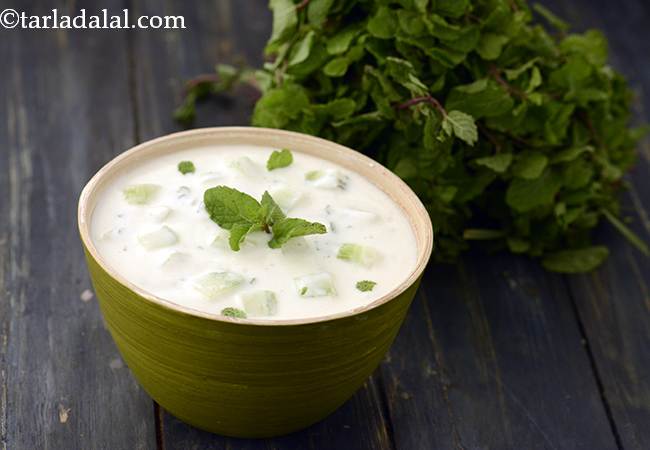See Yellow Moong Dal and Spring Onion Paratha recipe.
In this delicious Yellow Moong Dal and Spring Onion Paratha, the spring onions provide an exciting crunch to a wholesome and tasty stuffing made of iron-rich yellow moong dal.
Moreover, this mouth-watering dish is made with a dough of whole wheat flour, avoiding maida, which tends to raise blood sugar levels fast. So, you can enjoy this nutrition-dense and flavourful snack without any guilt.
Is Yellow Moong Dal and Spring Onion Paratha healthy?
Yes, this is healthy.
Let's understand the Ingredients.
What's good.
1. Whole Wheat flour : Whole wheat flour is excellent for diabetics as they will not shoot up your blood sugar levels as they are a low GI food. Whole wheat flour is rich in Phosphorus which is a major mineral which works closely with calcium to build our bones. Vitamin B9 helps your body to produce and maintain new cells, especially increase red blood cells. See detailed benefits of whole wheat flour and why it's good for you.
2. Yellow Moong Dal : The fibre (4.1 g in ¼ cup) present in yellow moong dal prevents the deposition of bad cholesterol (LDL) in the arteries which promotes a healthy heart in turn. Packed with nutrients like zinc (1.4 mg), protein (12.2 mg) and iron (1.95 mg), yellow moong dal helps to maintain the elasticity of your skin and help to keep it moist. Fiber, potassium and magnesium from yellow moong dal will work together to regulate blood pressure and soothe the nerves and is diabetic friendly. See here for details of 7 amazing benefits of yellow moong dal.
3. Onions (pyaz, kanda) : Spring onions are a very valuable source of vitamin C – the immune building vitamin. Along with other phytonutrients from onions, it helps to build WBC (white blood cells) which serves as a line of defence against illness. Yes, it’s a source of many antioxidants, the most important one amongst them being Quercetin. The quercetin which promotes production of HDL (good cholesterol) and lowers total cholesterol in the body. The sulphur in onions act as a blood thinner and prevents blood clotting too. This in turn would lower blood pressure and good for heart, diabetics. Read the benefits of onions.
Can diabetics, heart patients and over weight individuals have Yellow moond dal and spring onion Paratha ?
Yes, this recipe is good for diabetics, heart and weight loss. Whole wheat flour is excellent for diabetics as they will not shoot up your blood sugar levels as they are a low GI food. The fibre present in yellow moong dal prevents the deposition of bad cholesterol (LDL) in the arteries which promotes a healthy heart in turn. All healthy ingredients are used in this reicpe.
Can healthy individuals have Yellow moond dal and spring onion Paratha ?
Yes, this recipe is good.
What is a healthy accompaniment to this paratha?
We suggest you pair it with homemade curds using cows milk or low fat curds or or a low fat cucumber raita.

Cucumber and Pudina Raita
Yellow moond dal and spring onion Paratha is good for
1. Healthy Recipes Lifestyle
2. Healthy heart rotis
3. Diabetics with heart issues
4. Diabetic rotis
5. High fibre to lower cholesterol
How to burn 109 calories that come from Yellow Moong Dal and Spring Onion Paratha?
Walking (6 kmph) = 33 mins
Running (11 kmph) = 11 mins
Cycling (30 kmph) = 15 mins
Swimming (2 kmph) = 19 mins
Note: These values are approximate and calorie burning differs in each individual.